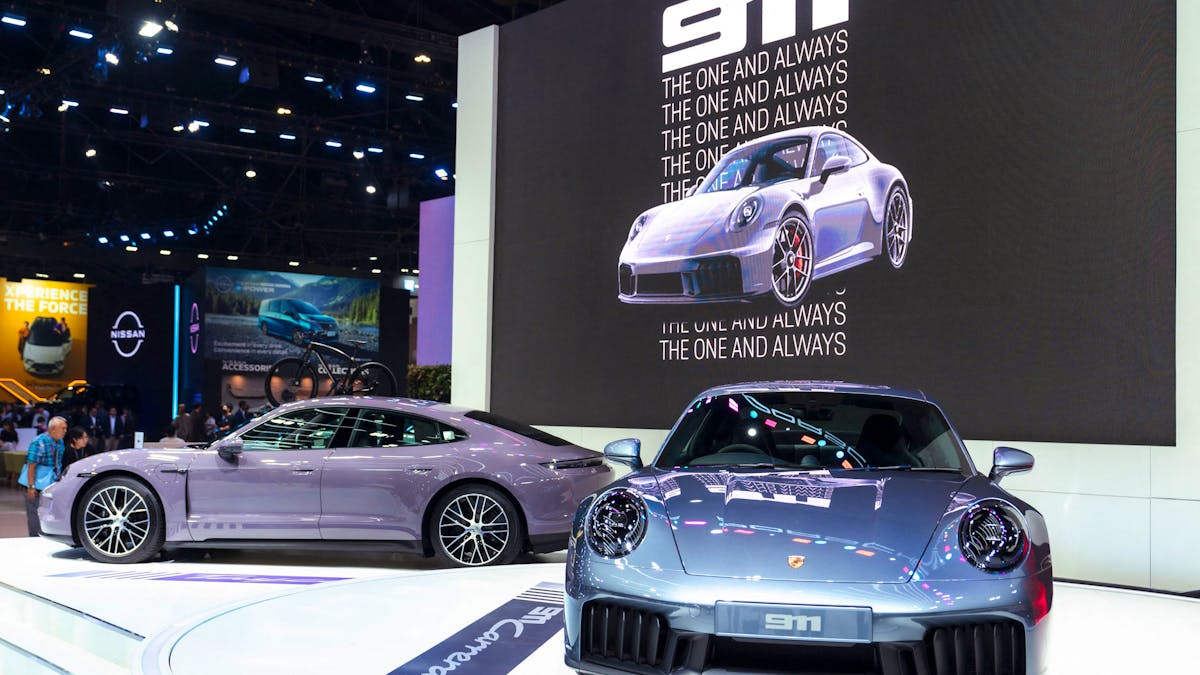The strengthening of customs duties on cars imported in the United States is a disaster for many European manufacturers, including the Germans, who carry out a large part of their profits there.
The United States is a “key market” for the European automotive industry, which exported there in 2024 nearly 750,000 cars for a value of 38.5 billion euros, according to the European Association of Manufacturers (ACEA).
The new American customs duties worth 25% on “all cars that are not made in the United States” will come into force on April 2, said Donald Trump on Wednesday.
Abyssal losses
According to an analysis of Kearney, these customs duties could “quickly lead to losses of several billion euros and jeopardize up to 25,000 jobs in Europe”.
“Manufacturers could absorb part of the costs in their existing price margins,” said the Moody’s agency at the end of February. This is especially true for the most expensive and profitable models. But the announced level of customs duties leaves little room anyway for profits.
Volkswagen, BMW, Mercedes
German manufacturers are particularly targeted by Donald Trump: they represent almost two thirds of European exports.
Volkswagen, BMW and Mercedes have already displayed gloomy financial results in 2024, with a fall in their profits, weighed up among other things by the slowdown in their sales in China.
If confirmed, the increase in customs duties could now divide their sales by two in the United States, according to the Capital Economics.
“Fatal signal for free trade”
This would represent “a fatal signal for free trade,” said the federation of German car manufacturers in a press release.
Audi and Porsche, the high-end brands of the Volkswagen group, make all their models outside the United States. The group could however decide to locate the production of some of them in the factories of its other brands, but this will take time.
BMW and Mercedes have exported sedans from Europe, but they also have local factories (in Alabama and South Carolina) where they make SUVs, favorite models of Americans, such as the BMW X5 or the Mercedes Gle.
They would thus partly escape customs duties for their sales in the United States, but the export of these SUVs to other countries could become less profitable, if they decided to reply by increasing their taxes.
For BMW, a trade conflict “would have no advantage,” said the Munich firm in a statement on Thursday, calling for Europe and the United States to “quickly find a transatlantic agreement” and prevent “a spiral of isolation and commercial barriers”.
More simply, Mercedes called for his side to abolish these reciprocal customs duties.
Stellantis, Volvo
The Stellantis group, fifth world manufacturer, is horseback between Europe and the United States: it produces the majority of its sales in Europe, but especially the majority of its profits in North America, with its Jeep, Dodge, or RAM brands. It has many factories in Mexico and Canada, which will be strongly disturbed by taxes targeting these two countries.
But Stellantis is less exposed to the trade conflict between the United States and Europe because it only exports a few Jeep Made in Americaand anyone in the United States only a few Fiat, Alfa Romeo or Maserati.
Suédo-Chinese Volvo, whose SUVs are sold very well in the United States, has also had a factory since 2015 in South Carolina, and could “relocate production or even relocate suppliers to different parts of the world”, said Volvo Jim Rowan boss in February.
Renault Alpine
The Renault group is very little affected because it does not sell cars in the United States. But the implementation of these customs duties could put an end to its development plans of its Alpine brand in the United States.

